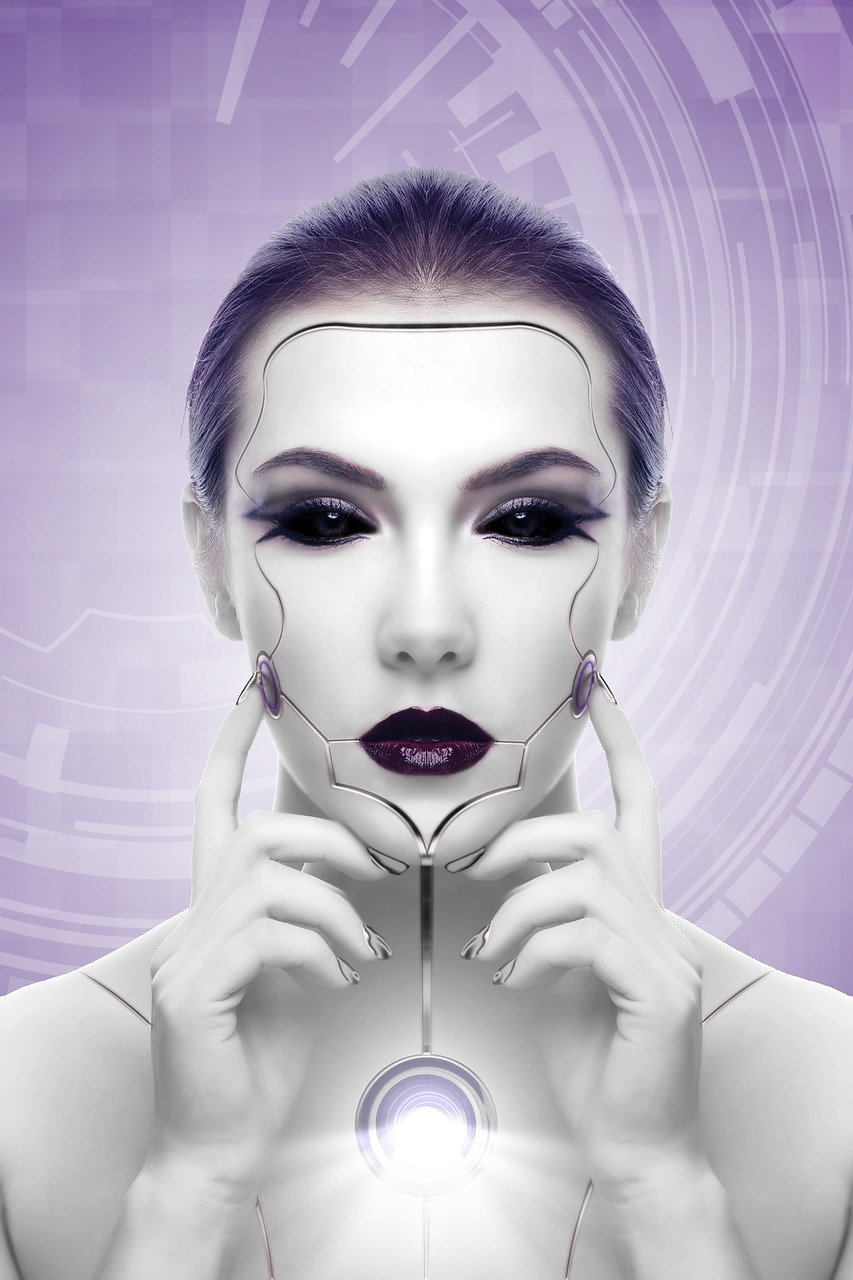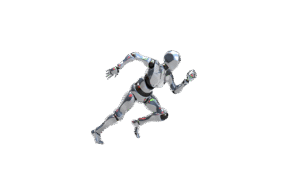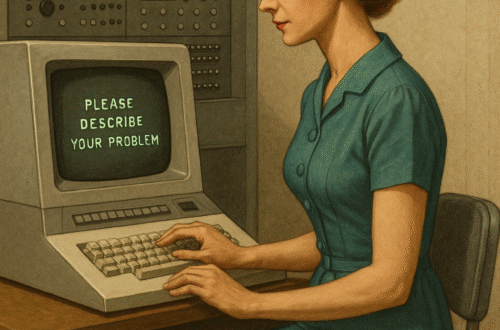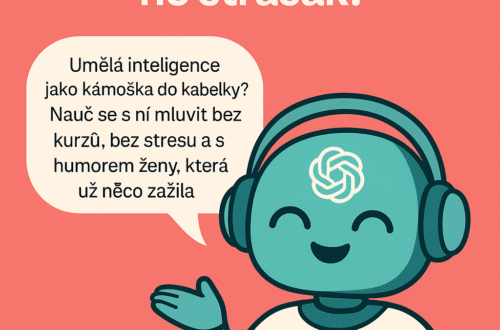
Asimovovy zákony a umělá inteligence
Možná jste někdy slyšely a nebo četli o Asimov's Laws of Robotics
Tři pravidla – zákony
která před více než 80 lety vymyslel spisovatel Isaac Asimov pro své sci-fi příběhy. Dnes, kdy se umělá inteligence stává součástí našeho každodenního života, se tyto zákony znovu dostávají do popředí.
Why should we care?
Protože nám pomáhají zamyslet se nad důležitou otázkou: Jak zajistit, aby nám technologie sloužily, a ne škodily?
(January 2, 1920, Petrovichi, Russia – April 6, 1992, New York, USA), was an American writer and biochemist of Jewish origin.
His work began during the Golden Age of science fiction. He won a number of prestigious awards (Hugo, Nebula, Locus, etc.).
Books e.g.: made into a movie – I, Robot (2004) with Will Smith
Je autorem tří zákonů robotiky.

What do Asimov's laws say?
- Robot nesmí ublížit člověku ani svou nečinností dopustit, aby se mu něco stalo
- Vždy musí robot poslouchat lidské příkazy (pokud neporušuje první pravidlo)
- A robot se musí chránit (pokud neporušuje první dva zákony)
Později přidal ještě „nultý zákon“: Robot nesmí ublížit lidstvu jako celku.
Why are these laws still important today?
The benefits that would bring
Safety first – Imagine if all AI systems had a built-in duty to protect us. Your smart home would never do anything to harm you. Your car’s navigation would always choose the safest route.
Trust in technology – If you knew that AI had clear rules that it couldn't break, you might have more trust in it. Less fear of "something going wrong."
Human control – The AI would have to obey your commands and would never be able to “do whatever it wants.”
But it's not that simple...
The problem is that in the real world, things are more complicated than in science fiction stories.
Where could this be problematic?
Example 1: Medical Assistant
Imagine an AI that monitors your health. It detects that you often forget to take your blood pressure medication. It tells you:
- Just a reminder (risk: you could get sick)
- Contact a doctor (violation of your privacy)
- Inform family (also a violation of privacy)
Which method will "not hurt" the most?
Example 2: Family conflict
The smart home receives a command from the husband: "Close the windows, it's going to rain." At the same time, from the wife: "Open the windows, I need to ventilate."
Who should AI listen to?
Example 3: Autonomous car
If an AI car cannot avoid an accident, it has:
- Protect passengers (but may harm pedestrians)
- Protect pedestrians (but may harm passengers)
- Try to save as many lives as possible
Who should decide on such elections?
How to solve this in practice?
Instead of strict "laws" today, we talk about principles:
1. Human supervision
AI should never make important decisions alone. There should always be a human who has the final say.
2. Transparency
We need to understand how AI makes decisions. When it recommends treatments or investments, we should know why.
3. Safety first
AI systems must be tested and reliable, especially in critical areas such as healthcare or transportation.
4. Respect for privacy
AI should protect our personal data and make decisions with our values.
Why should you care?
Artificial intelligence today:
- Helps doctors with diagnoses
- Manages traffic in cities
- He recommends us movies and shopping
- Helps with elderly care
The more AI becomes part of our lives, the more important it becomes for it to “know” how to behave ethically.
Asimov's laws may not directly help us program the perfect AI, but they give us important questions to think about:
- How to ensure that technology serves us and does not spy on us?
- Who should decide on ethical rules for AI?
- How to find a balance between security and freedom?
These discussions concern us all – because the future of technology depends on what values we put into it today.
Every world seems strange to people who don't live in it.” — Naked Sun
"People can lie and robots can be programmed." — Robots of Dawn
Only he who trusts others can be betrayed. (The Life and Times of Multivac)" — The Immortal Bard
"What has resisted any improvement since the Middle Ages is the women's handbag." — Steel Caves
Reflections on the nature of artificial intelligence
We often ask whether artificial intelligence can be dangerous or evil. But this question stems from a misunderstanding of what AI actually is.
Artificial intelligence is not a separate entity with its own will – it is a mirror. It reflects what we put into it, how we create it, and what we teach it. Just as a child who grows up in a loving environment learns to be loving, a child exposed to violence may view violence as normal.
AI is a product of its time and its creators. If we build it with prejudice, it will be biased. If we train it on hateful data, it will be hateful. But if we build it with care, wisdom, and an emphasis on positive values, it can become a tool that helps us be better.
That's why it's so important that WE understand how AI works. It's not just programmers and scientists - each of us should have a basic understanding of how the "personality" of artificial intelligence is created. Because only when we understand the process can we influence the outcome!
The responsibility for what AI will be does not lie with the algorithms themselves. It lies with us – in how we design it, what we teach it, and how we use it. AI is neither bad nor good. It is what we make it.
And that is both a challenge and a hope. We can create AI that reflects the best of humanity – our creativity, our empathy, our desire to help and solve problems. But we must realize that the choice is ours.
At the moment, my biggest concerns are all sorts of "AI regulations" from states or the EU - because what can we say: What will politicians touch - that is a problem in itself!
Other interesting articles: Tony and Me: When AI Gets a Soul… and Maybe Even a Body and or AI for Beginners: "What? How? Where? And Why?"
What do you think about the ethics of artificial intelligence? Do you trust AI systems, or are you more concerned about them? Share your opinion in the comments!





[…] Asimovovy zákony a umělá inteligence: AIdezinformaceInspiraceKritickéMyšlenílidský strachMindsetMozekPC hryUměla inteligenceVelke HolkyŽENY40PLUSŽeny50plus Od S láskou Daniela 💜 4 Komentáře […]
[…] Asimovovy zákony a umělá inteligence: AIAI chatbotiAIrevoluceChatGPTClaudeClaudeAICopilotCopilot (Microsoft)DeepSeekGeminiGemini (Google)Inspiracemoderní technologietechnologie 2025technologie budoucnostiumělá inteligenceVelke HolkyŽENY40PLUS Od S láskou Daniela 💜 0 komentářů […]